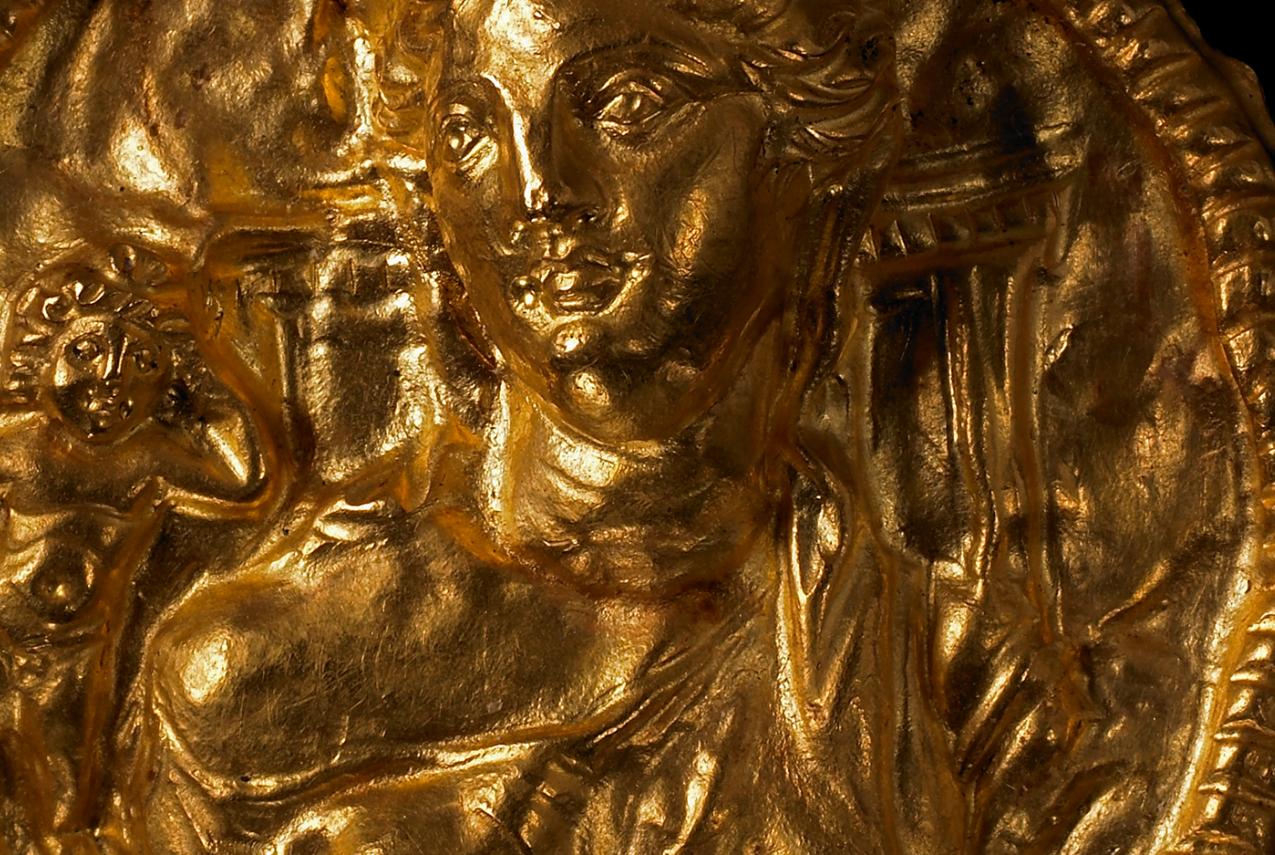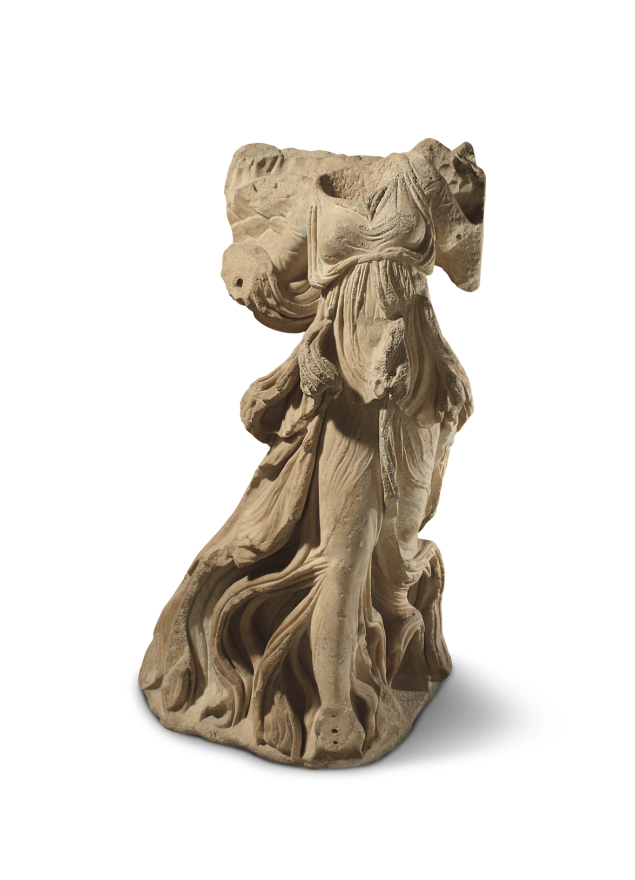
NIKE: GODDESS OF VICTORY
The Ancient Greeks worshipped many gods, each with their own attributes and legendary stories. Among the most famous of these was Nike, goddess of victory.
In a society where competition was so important, Nike was frequently represented in art. With her magnificent wings, she descended from the realm of the gods to deliver wreaths, victory ribbons, palms or trophies to the mortal victors of both sporting contests and battles.
Pictured: Statue of Nike. Terracotta. About 100 BC. Found at Halikarnassos (modern-day Bodrum, Turkey). 1857,1220.334. © The Trustees of the British Museum
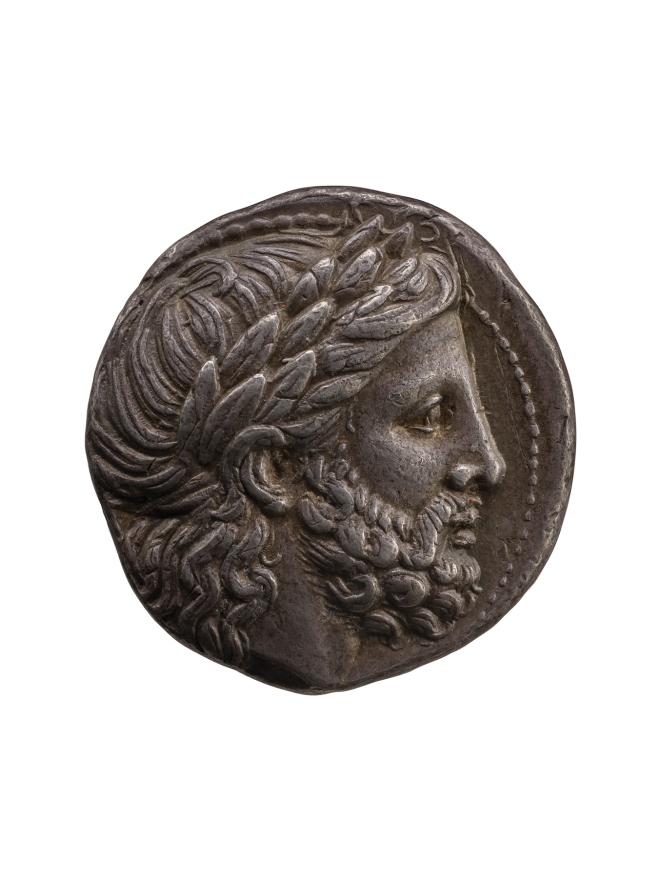
SPORT
The Ancient Greeks were fanatical about sport. Even in times of conflict, battles would stop to allow sporting competitions to take place.
Major sporting events were attended by thousands of spectators who travelled great distances to take part. The most famous games were held every four years at Olympia.
While these festivals were great unifiers of the Greek people, what counted most was the fame and supreme glory of becoming a champion.
Pictured: Coin featuring Zeus. Silver. Minted at Elis, Greece about 200–100 BC. EH,p483.13.Eli. © The Trustees of the British Museum
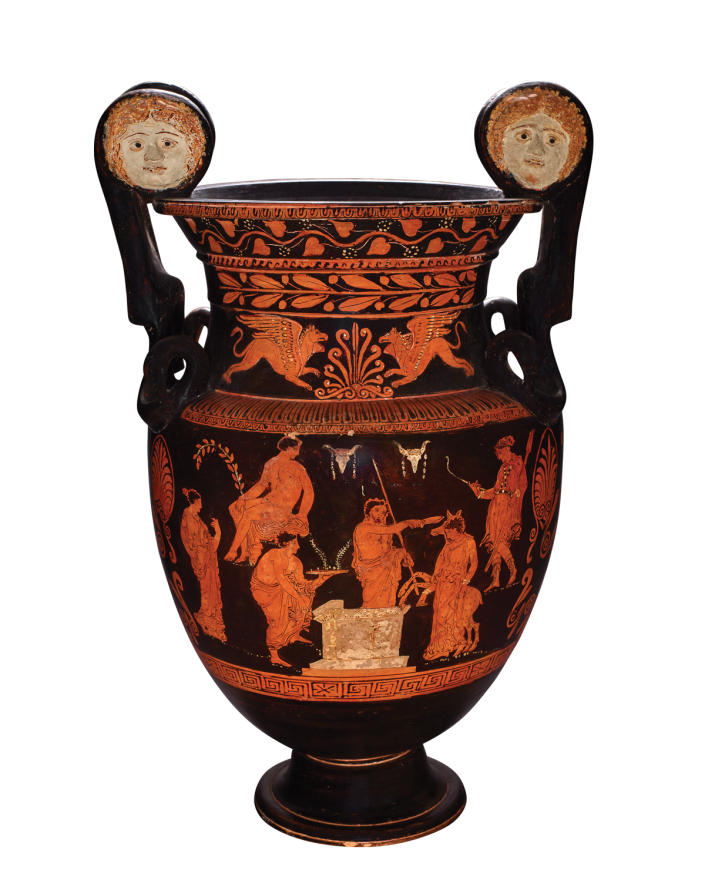
PERFORMING ARTS
Performing arts competitions were an important part of festivals, especially those dedicated to Dionysos, the god of theatre and wine.
Drama, poetry, music and dance competitions drew huge crowds and were attended by men and women from all classes, even slaves.
Writers and performers became celebrities and were richly rewarded.
The famous Greek dramatists Aeschylus, Euripides, Sophokles and Aristophanes entered and won such competitions. Their enduring masterpieces are still performed today.
Pictured: Volute krater. Red figure pottery. Made in Apulia, southern Italy about 360–350 BC. Found at Basilicata, Lucania, Italy. 1865,0103.21 © The Trustees of the British Museum
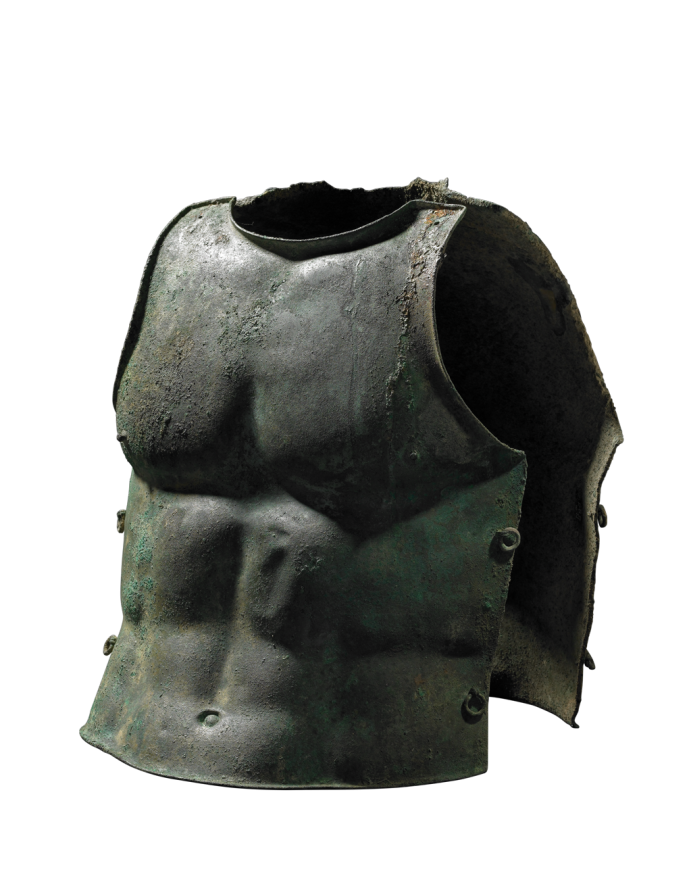
WAR
War was glorified as the ultimate form of competition.
Conflict between rival kingdoms and city-states was a constant feature of life in the Ancient Greek world.
Battles were fought over land and natural resources, fuelled by the ambitions of kings and rulers. They were expensive, disrupted agricultural activity and destroyed lives.
Pictured: Cuirass (body armour). Bronze. About 350–300 BC. Found at Ruvo di Puglia, Apulia, Italy. 1873,0820.223 © The Trustees of the British Museum
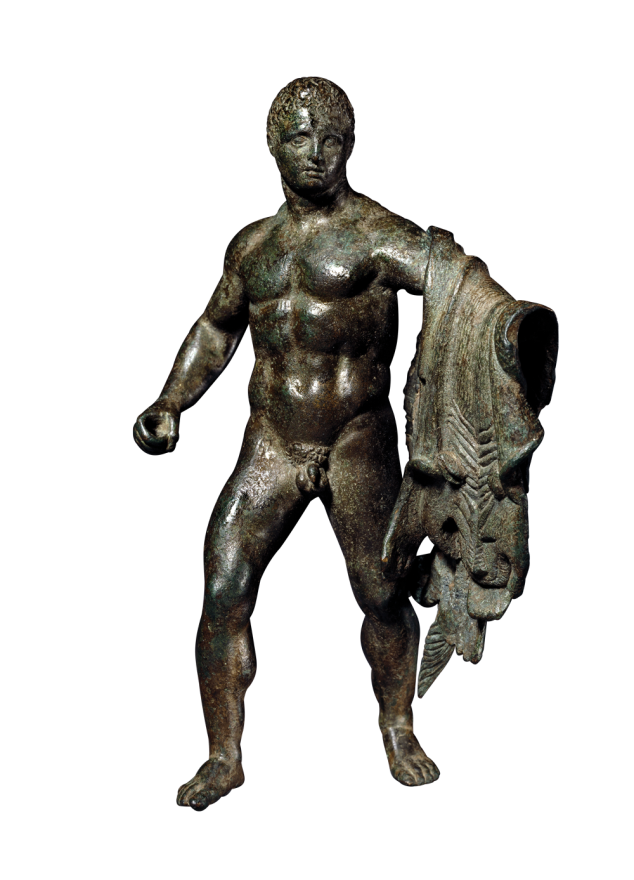
HEROES AND MYTHS
The Ancient Greeks imagined their past as a time of heroes, epic adventures, fierce battles and fantastic creatures. They loved storytelling and tales of the most well-known heroes, Herakles (Hercules) and Achilles, were popular.
Both were gifted with superhuman strength and their lives were full of personal crises, bitter rivalries and battles with other mythical heroes.
Their stories were rendered even more dramatic by the gods who, to serve their own purposes, intervened in and manipulated the lives of the heroes.
Pictured: Statuette of Herakles. Bronze. Made in southern Italy, about 400–350 BC. 1873,0820.78 © The Trustees of the British Museum
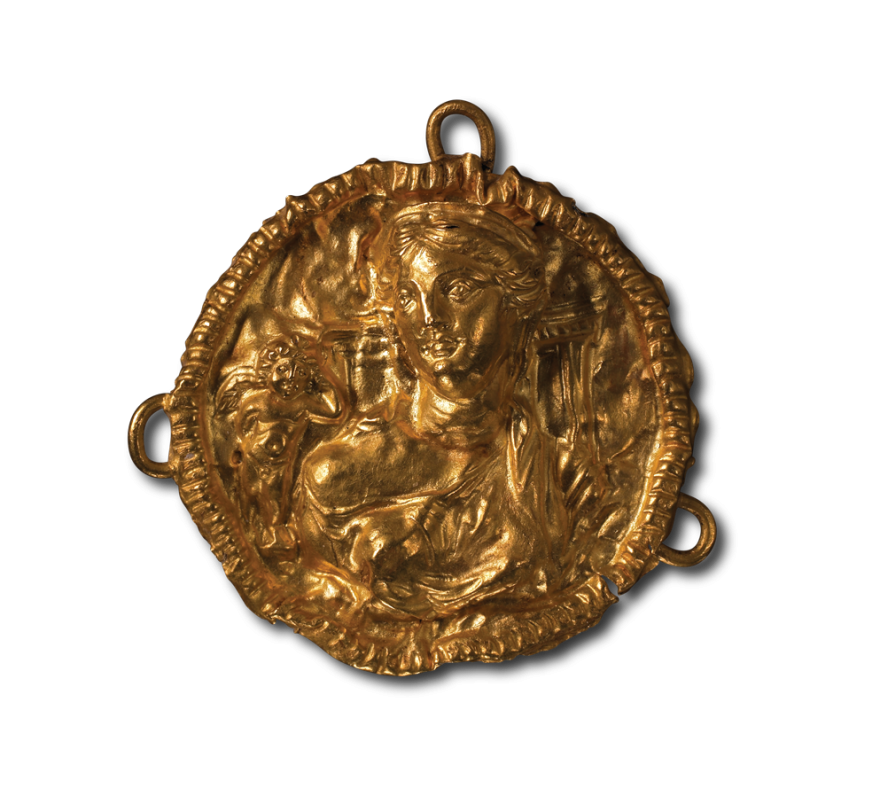
SOCIETY
Competition among the Ancient Greeks extended beyond the stadium and stage. Every public space was an arena in which status and social position were on display.
While personal adornment demonstrated wealth and status, public benefaction made a much grander statement. The wealthy competed with each other to sponsor sporting events, the performing arts, processions and festivals.
Even in death, competition was part of daily life. This exhibition includes artefacts from the Mausoleum at Halicarnassus. This burial site was of such scale and beauty that it was listed as one of the Seven Wonders of the Ancient World.
Pictured: Medallion with Aphrodite and Eros. Gold. Made in Egypt about 200 – 100 BC. Found in Egypt. 1884,0614.12 © The Trustees of the British Museum
